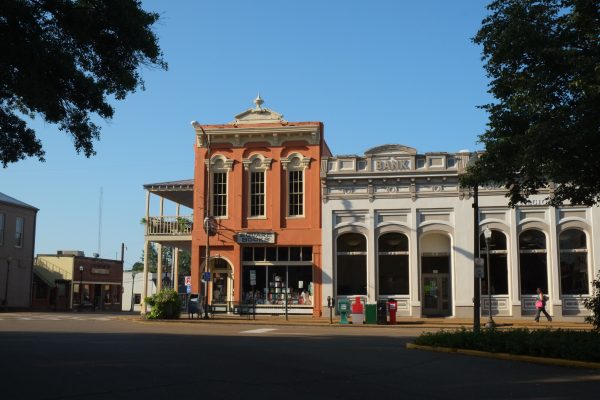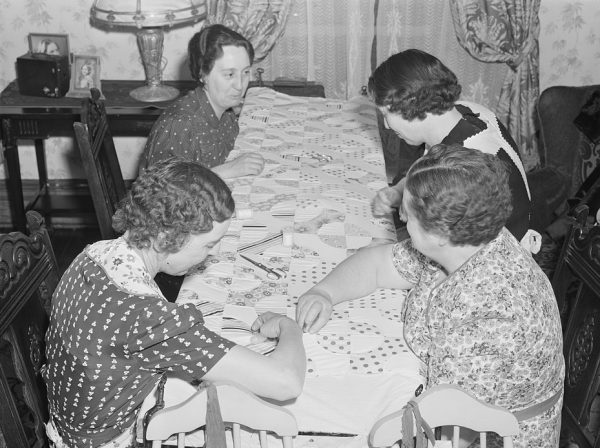Nolon and Adene
I’ve been reading Miss Hickory to our nine- and six-year-old granddaughters. In one passage, Mrs. Pheasant laments to her friend Miss Hickory (a doll with a head made from a hickory nut) that Mr. Pheasant treats her poorly each fall. Miss Hickory encourages her friend to copy something that human ladies do. She tells Mrs. Pheasant that she should gather other lady pheasants together to have quilting bees—made from leaves instead of fabric. Miss Hickory shows Mrs. Pheasant how to make quilts and tells her that the women who gather for a quilting bee bring dishes of food so that they can share a meal afterward.
Miss Hickory’s description took me back to the early years of our marriage when we lived in Oxford, Mississippi. Ladies from our church gathered on many Friday mornings for work days. Sometimes we worked on decorations for children’s Sunday school classes. Often we gathered around a quilt frame to make a quilt together. Like the ladies in Miss Hickory, we brought food to share in a lunchtime meal.
What special memories I have of those days with women of multiple generations, along with the babies and toddlers of some of us young mothers. What a blessing it was to soak up their wisdom.
Yesterday I wrote about a helpful young man. I have fond memories of a helpful older woman who was in many ways the heart of our Oxford, Mississippi, quilting bees. Her name was Adene. She was a tiny woman from a family of 15 children that included five—count them, five!—sets of twins! Adene was one of those pairs. Adene grew up to marry Nolon. Nolon was a pharmacist who owned a drugstore on the Oxford town square. If you happen to be familiar with modern Oxford, Mississippi (which has become one of America’s premier retirement communities in the years since we were there), Oxford’s famous Square Books bookstore was once the home of Nolon’s Blaylock Drugs.

Adene was in charge of what we referred to as the church’s “needy closet.” She took care of the clothing in the needy closet and she served the people who needed it. She was also the faithful delivery person who took poor people what they needed. When I think of Adene, I think of her servant heart.
Just like the ladies in this 1940 photo from the Library of Congress, the quilts we made at our quilting bees were for needy people, such as those who had lost a home to a fire. If my quilting bee experience was today instead of in the late 1970s and early 1980s, I would have a phone photo of one of those long ago quilting bees, but I’m content picturing it now in my memory.

Adene’s husband Nolon was a servant, too. He served as one of our congregation’s deacons. A very short walk from the church building was a grassy lot that served as a parking lot. Nolon literally served until his dying day. He passed away while mowing that grassy lot.
Needy people isn’t a term we are used to hearing these days, but I hope it isn’t offensive. We are all needy people actually. There is always someone who needs us and there is always someone whom we need.
I am grateful for the lives and examples of Nolon and Adene. They, like Phoebe whom Paul mentioned in Romans 16, had hearts to serve. May people always see us and our children living those kinds of lives.
I recommend to you our sister Phoebe,
who is a servant of the church which is at Cenchrea,
that you receive her in the Lord
in a manner worthy of the saints,
and that you help her in whatever matter
she may have need of you;
for she herself has also been a helper of many,
and of myself as well.
Romans 16:1-2

